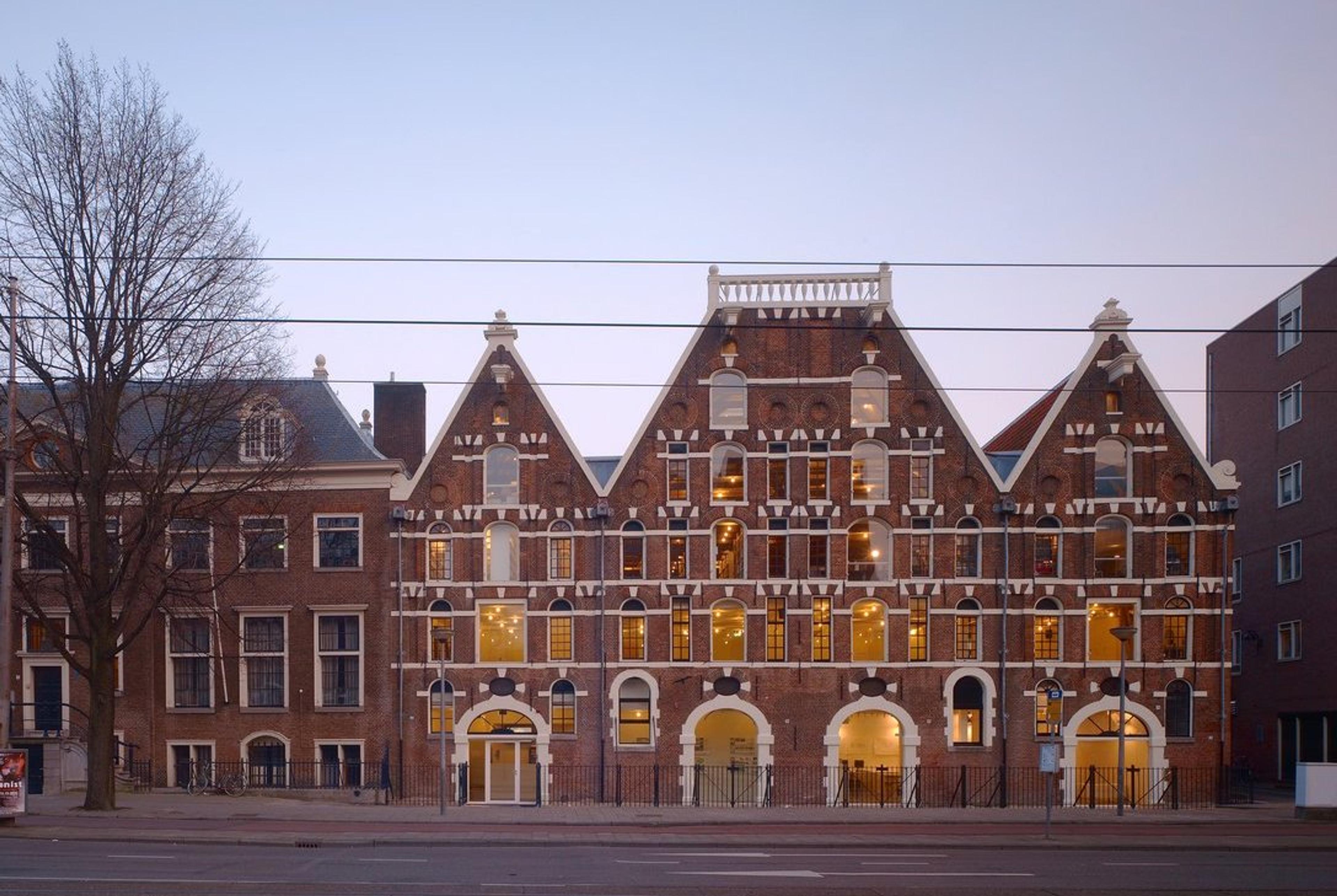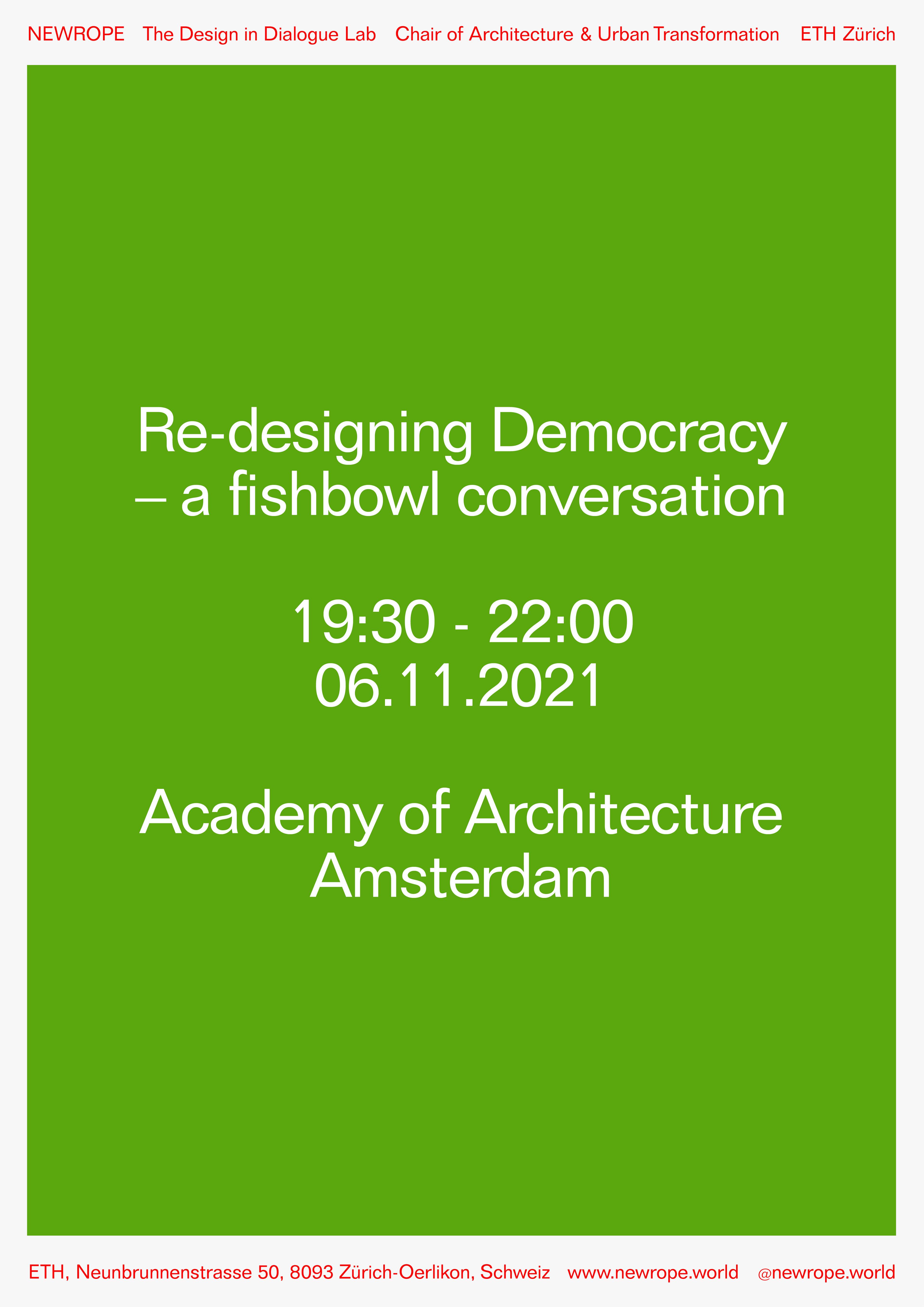Re-designing Democracy - a fishbowl conversation
On the day of the Climate March, which will be organized on November 6 in response to UN Climate Change Conference of the Parties (COP26) in Glasgow, and just five months before the local elections, we gather at the Academy of Architecture in Amsterdam to discuss the state of our democratic process and the role of design in making our cities more sustainable and just.
Amsterdam, like many other cities, is facing unprecedented challenges that require a swift and coordinated action that transcends disciplines and fixed positions. One thing we know for sure: existing power structures will have to be challenged and changed. But how can we ensure that future decisions and designs, which will have a profound and lasting impact on our environment, are made in an inclusive and transparent way? Should governments impose drastic measures or do we have to accept and support a more inclusive and incremental culture of change?
The widening field of tension between the necessary speed of our response and the patience we need to empower more people, will set the stage for an informal gathering at the Academy of Architecture in Amsterdam on Saturday 6 November. This public event is part of the academy’s Graduation Show 2021 and will start right after the Climate March which. It builds on the Power Seminar Week, which was organized by the NEWROPE Chair in Zurich from 25-29 October.

Academy of Architecture Amsterdam
Special guest is Andrea Reimer, a former city council member and deputy mayor of Vancouver. During her political career, Andrea spearheaded a number of initiatives, including Vancouver’s effort to become the Greenest City on earth. She currently teaches about power literacy at the University of British Columbia and is visiting various cities in Europe to work with students to help them to discover, express and strengthen their own power and ability to mobilise others.
We will be joined by architects, urban planners, activists, students and others who care about their environment and want to share and compare ideas for a more sustainable and democratic urban (re)development. We will start in Amsterdam, with a series of short opening statements about the state of politics, policy and participation in a city that is confronted with a range of intersecting problems that challenge the commonly held belief in the power of the ‘polder model’ or the Dutch version of consensus decision-making. Next we will be hearing from people who have been in actively involved in cities that share the same challenges as Amsterdam, but deal with them differently. What can we learn from Rotterdam, Utrecht, Vancouver or Zurich in terms of democracy, urban development and the role of design?
The evening will follow the example of a fishbowl conversation, a form of dialog that can be used when discussing topics within large groups. Fishbowl conversations are sometimes also used in participatory events such as unconferences. The advantage of fishbowl is that it allows the entire group to participate in a conversation.
This exchange takes place in the context of Graduation+, the annual open house at the Amsterdam Academy of Architecture, where the work of students and recent graduates is on display. It is co-organised by the Master in Urbanism at the Amsterdam Academy of Architecture, the Master’s programme in Urban Design of the Rotterdam Academy of Architecture and Urban Design, and The NEWROPE Chair of Architecture and Urban Transformation at ETH Zürich.
– Saturday 6 November, 19:30 - 22:00
– Academy of Architecture Amsterdam, Waterlooplein 211-213
– Special guest: Andrea Reimer, power expert and former politician and deputy mayor of Vancouver, Canada– Open to all and free of charge
– A COVID certificate is required
– Sign up via this link.
– For more information and questions please contact Michiel van Iersel vaniersel@arch.ethz.ch
